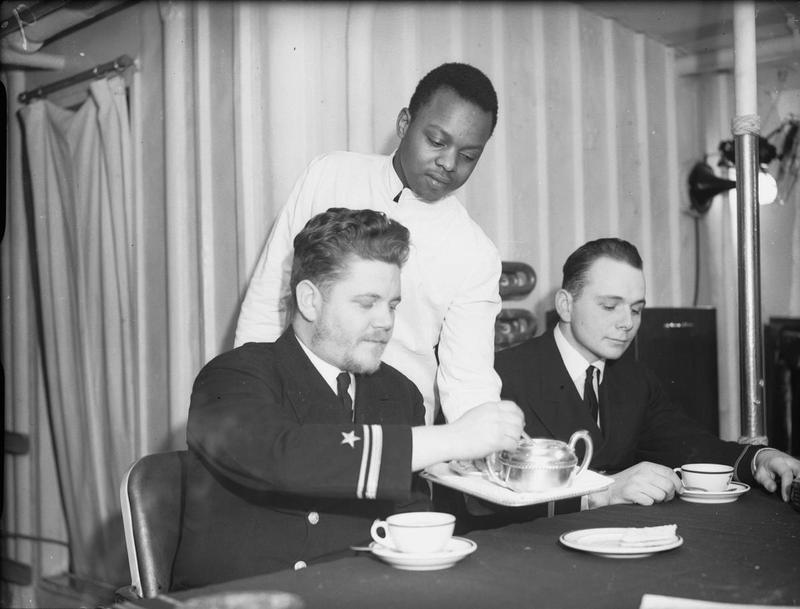Gerry as a Steward
Ezra would later go to the Northern United States and become a steward on the Joyline company of ships. This was a way of escaping the growing racial tensions of the south and to seek better wages. He would be employed for longer periods of time and work more often. Being on board for each cruise to cook, clean, or help those on board. Unlike when he was a stevedore/longshoremen the work was stable. Stevedore/longshoremen worked only when the ships were in port. He also had a much less physically taxing job. No more 30 hour days, lifting large amounts of weight.
The change to being a steward also brought a change in working dynamic as well. Instead of working with a gang that would have all been one race or only slightly integrated. On board the boat as a steward he would work with people of all different races. Everyone on board would work together in some way. He would still be working the closest to other African Americans but would have a larger number of interactions with other races. The port in Pensacola had everyone separated. Not by law, but the stevedore/longshoremen gangs separated themselves by race.
As a steward on the Larchmont, Gerry was a cook. He would prepare meals for the ship’s guests, similarly to how any modern cook would prepare meals for their guests. A steward was an interesting position for Gerry. Passengers of ships treated stewards as inhuman servants. They only existed to obey their passengers' wishes. Gerry did not have as much physical labor to perform upon the Larchmont, however, an occupation on a ship was dangerous work. Little did he know, the ship would be the end of his life.
For further reading:
Packard, Winthrop. “Stewards of an Ocean Liner Above and Below Decks.” GG Archives. Accessed March 31, 2019. https://www.gjenvick.com/OceanTravel/SteamshipCrew/1904-05-StewardsOfAnOceanLiner.html

